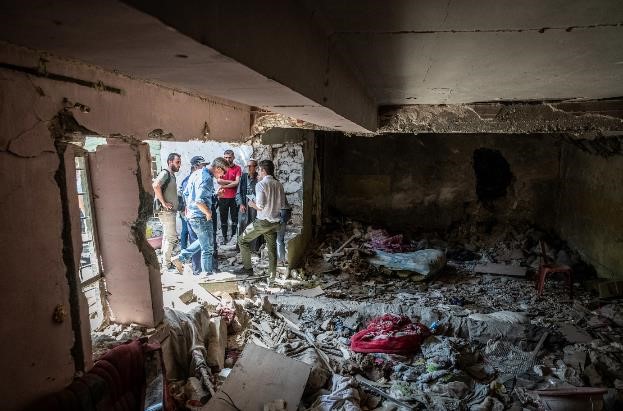Mosul’s Old City was decimated by Daesh. At the time of liberation, it was estimated that 10 million tonnes of rubble – equivalent to three Giza pyramids – was left in the city. Today, the United Nations Development Programme (UNDP) is working to rehabilitate 15,000 homes in the area. UN Resident Coordinator in Iraq Marta Ruedas explains why this project is crucial in bringing this once-vibrant city back to life.
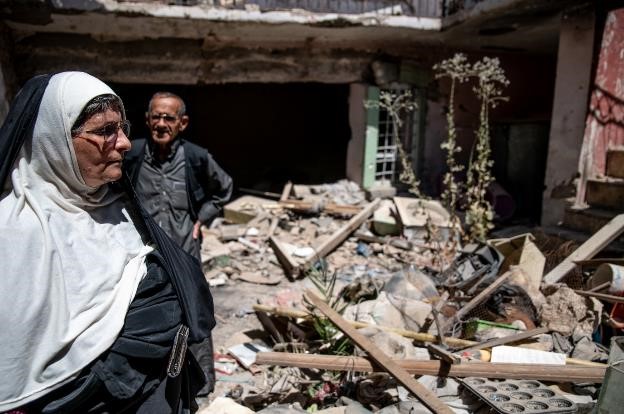
We provide stability by encouraging families to return home
Violent extremism can flourish in environments that lack social services, basic infrastructure and employment opportunities, and in instances where people are subject to sub-standard living conditions like tents in camps. By rebuilding homes, we set the foundations for more stable living conditions in communities, ensuring residents can return home safely and with dignity.
Damage to a person’s home is one reason why people are reluctant to return. Those who do return often find their entranceways engulfed by rubble, their possessions stolen, and the walls of their home torched. In some areas, people have found mounds of dirt in their living rooms, left over from elaborate underground tunnel networks built by Daesh.
Explosive hazards also pose a huge problem, especially in the Old City. To date, UNDP rubble removal crews have found 92 explosives in homes – and counting. We work with the United Nations Mine Action Service (UNMAS) to ensure these are removed safely so work can continue
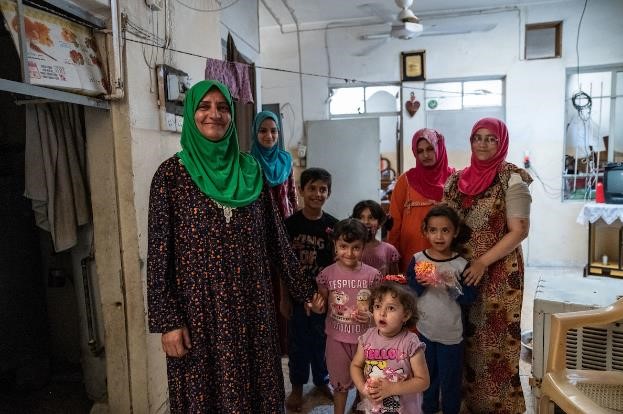
We operate on a huge scale
Our project in Mosul builds on the successful housing work rolled out in other areas of Iraq – Across Ramadi and Fallujah, UNDP has already restored 14,733 homes. Another 3,000 are close to being finalized in the Ninewa Plains. Soon, another few thousand will be rehabilitated in Baiji and Western Anbar – the last area to be liberated from Daesh. Our work in Mosul is complimented by other housing rehabilitation projects implemented by UN agencies and NGOs, including the International Organization for Migration (IOM), UN Habitat and Human Appeal on behalf of the United Nations High Commissioner for Refugees (UNHCR). These activities are all coordinated through a central group made up of representatives across the housing sector called the Shelter Cluster.
Our impact is clear
I’ve had the opportunity to visit Mosul and hear firsthand from beneficiaries how the rehabilitation of their home has given them hope for the future. I’ve met families who’ve had their homes for several generations, never thinking they would ever be able to return. I’ve met women who have had to live in a tiny room with five or six of their children, sometimes for several years. The stories are devastating and often harrowing. But people always manage to tell them with a smile, and coming back to not just a house – but a home – is one of the reasons why.
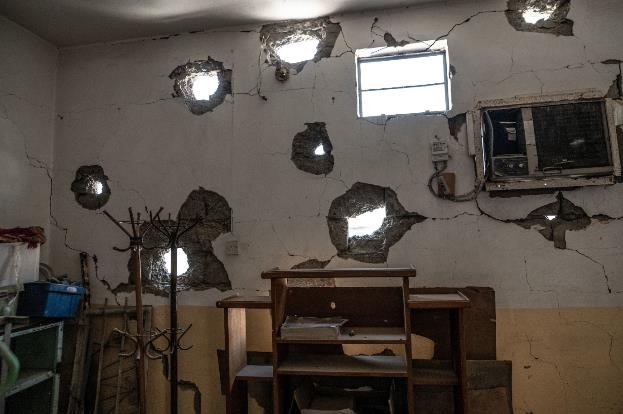
We focus on the people who need it most
Priority is given to the most vulnerable groups in Iraq. Female-headed households, households run by a minor, people living with a disability, and households where the breadwinner has not had employment in the last three years are at the top of our list.
Our approach is considered and consultative
Neighbourhoods in Mosul were selected alongside the provincial government and Mayor’s office, based on the numbers of returnees to an area and the level of damage sustained to homes.
Before work commences, all housing repairs are agreed to by the homeowner and the local Mukhtar. The work helps to make a house livable again – things like rebuilding and plastering walls, securing windows and doors, undertaking electrical work and restoring sanitation. Additional items for people living with a disability, such as ramps and seated toilets are also included. To ensure the work is carried out efficiently and ethically, it is closely monitored by UNDP, third party and government-appointed committees.
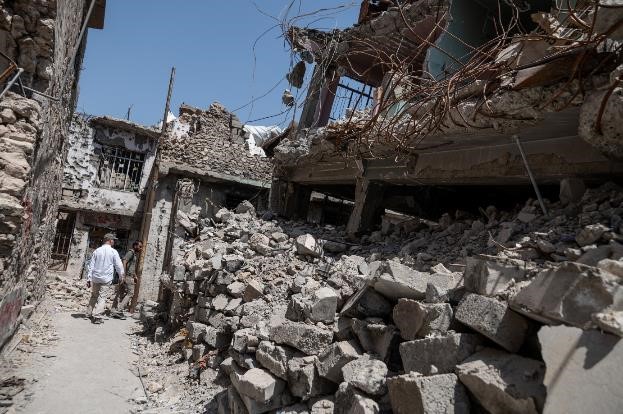
We preserve the unique character of the Old City
The streets of Mosul’s Old City are dotted with architectural gems like old mosques and churches, Ottoman-era designs, and precious marble columns. To retain Mosul’s character, charm and architectural brilliance, we work with the Iraqi State Board of Antiquities and Heritage as well as UNESCO to ensure as many elements as possible are preserved.
We provide thousands of jobs
Almost 7,000 new jobs will be created as part of the Mosul housing project. Firstly, local citizens are employed to clear rubble from the streets and houses, literally paving the way for rehabilitation work to start. Workers are employed on a two-or-three-month basis and receive USD 20 per day. Residents from the local area are selected to ensure that people have an opportunity to rebuild their own city. On top of this, contracting agencies undertake the restoration work, employing thousands of painters, plasters, masons, carpenters and site engineers. We also have a team of UNDP staff to monitor the work and facilitate the conversations with homeowners.
